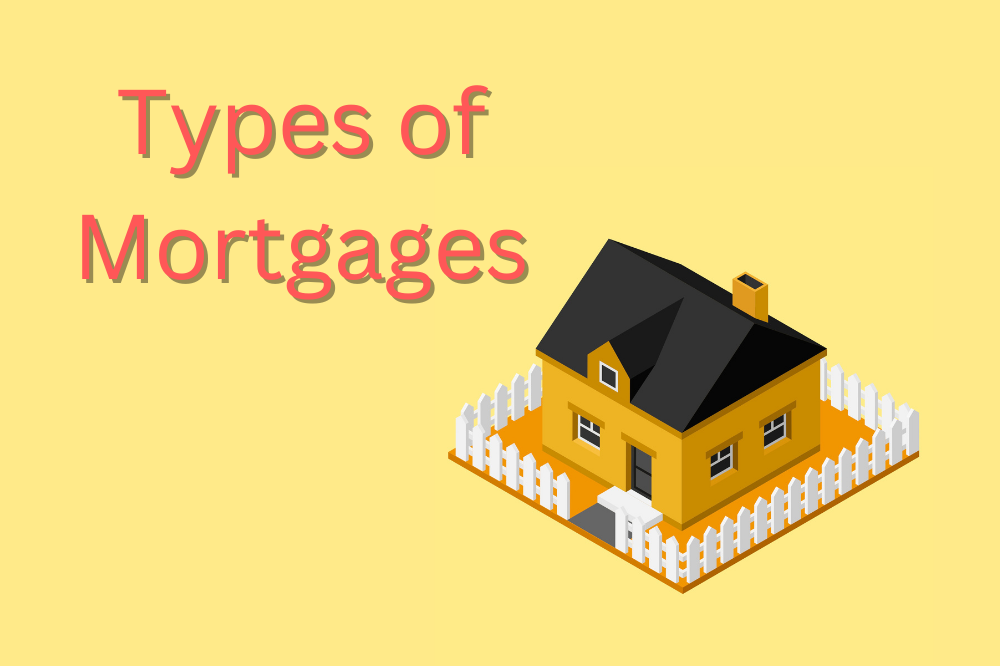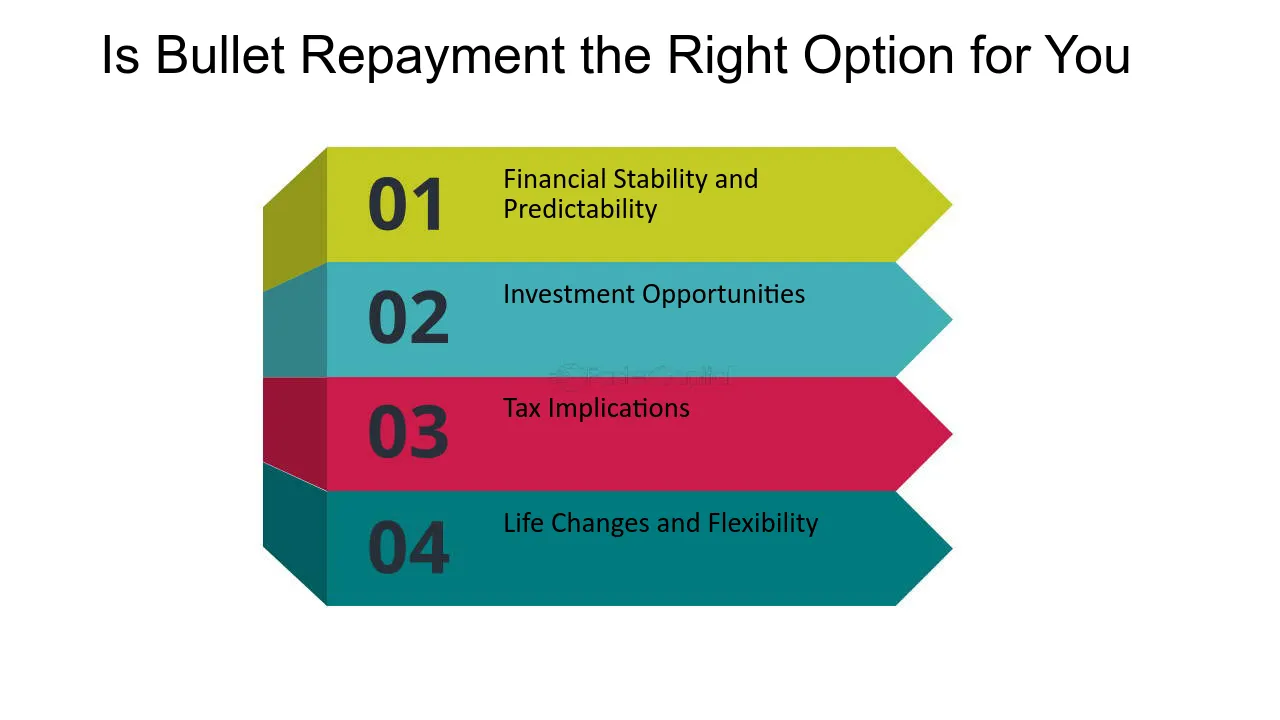Understanding Mortgage Types, How they work? Mortgages play a pivotal part in real estate requests, enabling individuals and families to achieve their dreams of homeownership. Whether you are a first-time buyer or a seasoned investor, understanding the complications of mortgages is essential. In this comprehensive companion, we will claw into the colorful aspects of mortgages, including their description, types, operation process, interest rates, and prepayment options. By the end, you will have a solid foundation of knowledge to navigate the mortgage geography confidently.
What’s a Mortgage?
A Mortgage is a loan handed by a fiscal institution, generally, a bank or a mortgage lender, to help individuals buy real estate. It’s a legal agreement in which the borrower pledges the property as collateral for the loan. The mortgage allows the borrower to make regular payments over a specified period, generally 15 to 30 times, until the loan is completely repaid.

Types of Mortgages
Conventional Mortgages
Conventional mortgages are the most common type of home loan. They aren’t ensured or guaranteed by any government agency, allowing lenders to set their eligibility criteria, interest rates, and down payment conditions. These mortgages generally bear an advanced credit score and a larger down payment compared to other types of loans. Conventional mortgages can be either conforming or non-conforming.
- Conforming Conventional Mortgages Conforming conventional mortgages cleave to the loan limits set by government-patronized enterprises( GSEs) similar to Fannie Mae and Freddie Mac. These limits vary by position and are acclimated annually. Borrowers who meet the criteria for conforming loans can profit from lower interest rates and more favorable terms.
- Non-Conforming Conventional MortgagesNon-conforming conventional mortgages, also known as jumbo loans, exceed the loan limits set by the GSEs. These loans are frequently used for high-value parcels. Non-conforming loans generally have advanced interest rates and more strict qualification conditions due to the increased threat to lenders.

Federal Housing Administration( FHA) Loans
FHA loans are insured by the Federal Housing Administration, a government agency that falls under the U.S. Department of Housing and Urban Development( HUD). These loans are designed to make homeownership more accessible, particularly for first-time buyers and individuals with lower credit scores or limited down payment finances. crucial features of FHA loans include
- Lower Down Payment FHA loans generally bear a down payment of 3.5 of the purchase price. This is significantly lower than the down payment conditions for conventional mortgages.
- Flexible Credit Conditions FHA loans are more lenient when it comes to credit scores. Borrowers with lower credit scores may still qualify for an FHA loan, although advanced credit scores can lead to more favorable interest rates.
- Mortgage Insurance FHA loans require borrowers to pay mortgage insurance decorations( MIP). This insurance protects the lender in case of dereliction. MIP consists of an outspoken decoration paid at ending and a periodic decoration that’s added to the yearly mortgage payment.
Veterans Affairs( VA) Loans
VA loans are specifically available to eligible stagers, active-duty service labor force, and their surviving consorts. These loans are guaranteed by the U.S. Department of Veterans Affairs and offer a range of benefits to stagers. crucial features of VA loans include
- No Down Payment VA loans generally don’t bear a down payment, making homeownership more accessible for stagers.
- Competitive Interest Rates VA loans frequently have more favorable interest rates compared to conventional mortgages.
- No Mortgage Insurance VA loans don’t bear private mortgage insurance( PMI), which is generally needed for conventional loans with a down payment below 20.
- Flexible Qualification Guidelines VA loans have further flexible qualification criteria, taking into account the unique circumstances of military service.
Adjustable- Rate Mortgages( ARMs)
Adjustable rate mortgages have interest rates that can change over time based on changes in the request indicator. ARMs generally have an original fixed-rate period, after which the rate adjusts periodically, generally annually. crucial features of ARMs include
- Original Fixed- Rate Period ARMs frequently start with a fixed interest rate for a predetermined period, generally 3, 5, 7, or 10 times. During this time, the interest rate remains unchanged.
- Rate Adjustment Once the original fixed-rate period ends, the interest rate adjusts periodically grounded on changes in the request indicator. The adaptation frequency and the maximum rate increase or drop are defined in the loan agreement.
- Implicit Savings ARMs can be profitable if interest rates drop over time, as borrowers may profit from lower yearly payments.
The Mortgage Operation Process
Pre-Qualification Pre-qualification is an original step where implicit borrowers give introductory fiscal information to lenders, who also estimate the loan quantum they may qualify for. It helps buyers understand their purchasing power and sets realistic prospects.
Pre-Approval Pre-approval involves a more detailed evaluation of the borrower’s fiscal information by the lender. This process includes a credit check, income verification, and assessment of other factors. Pre-approval provides a stronger commitment from the lender and helps buyers stand out in a competitive casing request.

Loan Estimate Once approved, the lender provides a loan estimate that outlines the loan terms, including the interest rate, closing costs, and yearly payment. This document ensures translucency and allows borrowers to compare offers from different lenders.
Financing underwriting is the process of assessing the borrower’s fiscal profile, the property’s value, and the overall threat associated with the loan. The coach verifies attestation, conducts an appraisal, and makes the final decision on loan blessing.
Ending The ending is the final stage of the mortgage process, where the loan documents are inked, and the power of the property is transferred to the buyer. ending costs, including freights for appraisal, title hunt, and attorney services, are generally paid at this stage.
Mortgage Interest Rates
Fixed-Rate Mortgages Fixed-rate mortgages have a harmonious interest rate throughout the loan term. They offer stability and allow borrowers to budget for the same yearly payment over the life of the loan.
Adjustable- Rate Mortgages( ARMs) ARMs have interest rates that can change over time grounded on request conditions. They generally have a fixed rate for an original period, after which the rate adjusts periodically. ARMs carry further threats but can be profitable if interest rates drop.
Mortgage Repayment Options
Amortization Amortization is the process of gradationally paying off the loan star and interest over time through regular yearly payments. In the early times, a larger portion of the payment goes towards interest, while the top portion increases over the loan term.

Bi-Weekly PaymentsBi-weekly payments involve making half of the yearly payment every two weeks. This results in 26 payments per time, which accelerates the repayment schedule and can save borrowers thousands of bones in interest.
Extra Payments Making fresh payments towards the star can help borrowers pay off their mortgages briskly and reduce the total interest paid. It’s essential to check with the lender about any repayment penalties and ensure that the redundant payments are applied correctly.
Conclusion
Understanding mortgages is pivotal for anyone considering homeownership. This comprehensive companion has handed an overview of mortgages, including their types, the operation process, interest rates, and prepayment options. Flashback to probe and compare offers from different lenders to find the mortgage that stylishly suits your requirements and fiscal situation. By making informed opinions, you can embark on your homeownership trip with confidence.




